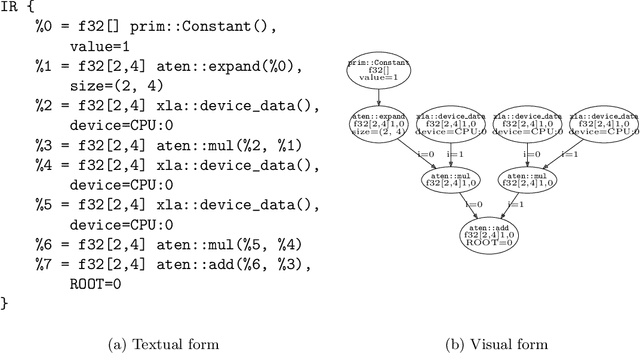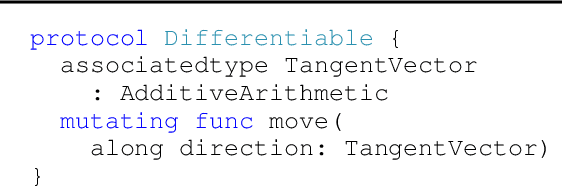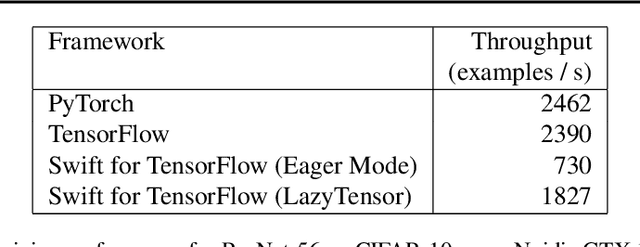Denys Shabalin
LazyTensor: combining eager execution with domain-specific compilers
Feb 26, 2021



Abstract:Domain-specific optimizing compilers have demonstrated significant performance and portability benefits, but require programs to be represented in their specialized IRs. Existing frontends to these compilers suffer from the "language subset problem" where some host language features are unsupported in the subset of the user's program that interacts with the domain-specific compiler. By contrast, define-by-run ML frameworks-colloquially called "eager" mode-are popular due to their ease of use and expressivity, where the full power of the host programming language can be used. LazyTensor is a technique to target domain specific compilers without sacrificing define-by-run ergonomics. Initially developed to support PyTorch on Cloud TPUs, the technique, along with a substantially shared implementation, has been used by Swift for TensorFlow across CPUs, GPUs, and TPUs, demonstrating the generality of the approach across (1) Tensor implementations, (2) hardware accelerators, and (3) programming languages.
Swift for TensorFlow: A portable, flexible platform for deep learning
Feb 26, 2021



Abstract:Swift for TensorFlow is a deep learning platform that scales from mobile devices to clusters of hardware accelerators in data centers. It combines a language-integrated automatic differentiation system and multiple Tensor implementations within a modern ahead-of-time compiled language oriented around mutable value semantics. The resulting platform has been validated through use in over 30 deep learning models and has been employed across data center and mobile applications.
 Add to Chrome
Add to Chrome Add to Firefox
Add to Firefox Add to Edge
Add to Edge